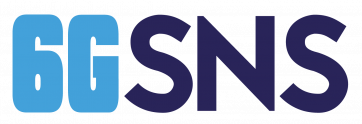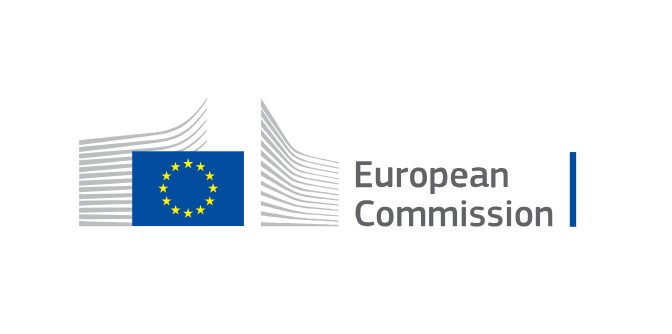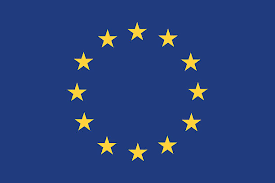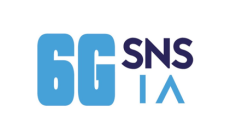
SNS JU October 2024 Newsletter
EU invests more than 500 million EUR to boost 6G research and innovation
The Smart Networks and Services Joint Undertaking (SNS JU) has announced the 16 winners of its third call for proposals, with a 127 million EUR funding boost in 2024.
On 30 October 2024 at 5G-Techritory in Riga, the Smart Networks and Services Joint Undertaking (SNS JU) announced the winners of its third call for proposals, with 16 innovative projects selected to receive funding for advancing the next generation communications networks and services. These projects aim to offer breakthrough innovations, develop experimental platforms, and conduct large-scale trials, driving world-class research and shaping the world’s digitally connected future.
The SNS JU received an enthusiastic response to its 2024 call, with requested grants totalling €863 million, more than 7 times the available funding. Proposals came from 1,874 applicants across 33 European countries, demonstrating the depth of beyond 5G/6G expertise across the region. The 16 selected projects in this third call will support 301 beneficiaries from 25 countries in developing and deploying next-generation network infrastructure, platforms, and services.
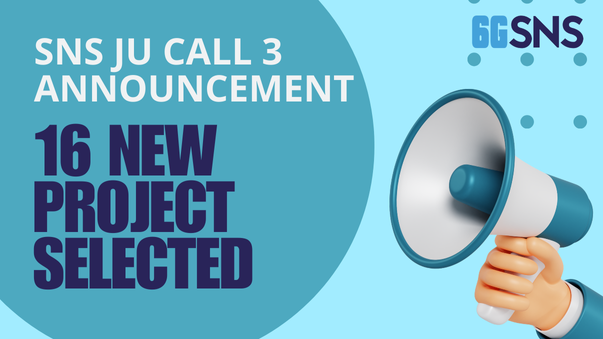
“We were pleased with the robust response to our 2024 call,” said Erzsébet Fitori, Executive Director of SNS JU. “The projects selected highlight the diversity of 6G development happening across Europe, from infrastructure to applications to security. SNS JU is proud to support these efforts to ensure Europe remains at the forefront of 6G research and innovation and help realise its potential to transform lives and society.”
The Commission analyses potential to boost European Research Area (ERA)
Over the past two decades, the ERA has triggered structural, economic and policy change. The current ERA Framework results from a revitalisation process, starting with the 2020 Commission Communication on a new ERA for Research and Innovation, followed by a new policy and governance framework adopted by the Council, and the Council recommendation on a Pact for Research and Innovation in Europe as well as the Council conclusions on the future governance of the European Research Area (2021).
The first ERA Policy Agenda (2022-2024) is nearing completion with tangible results, and this new Communication comes as the second ERA policy agenda (2025-2027) is being prepared.
Initiated in 2000 to address fragmentation in the European research landscape and given a new push in 2020, the ERA aims to create a dynamic and attractive environment for researchers and innovators across Europe, making it the place to be for them. The new Communication takes stock of the progress made under the four strategic objectives agreed with the member states and highlights where further work is needed.
The European Commission adopted the first implementing rules on cybersecurity of critical entities and networks (NIS 2 directive)
The Commission has adopted the first implementing rules on cybersecurity of critical entities and networks under the Directive on measures for high common level of cybersecurity across the Union (NIS2 Directive).
This adopted implementing regulation will apply to specific categories of companies providing digital services, such as cloud computing service providers, data centre service providers, online marketplaces, online search engines and social networking platforms, to name a few. For each category of service providers, the implementing act specifies when an incident is considered significant, to whom it needs to be reported and in which timeframe.
The adoption of the implementing regulation coincided with the deadline for Member States to transpose the NIS2 Directive into national law. From 18 October 2024, all Member States must apply the measures necessary to comply with the NIS2 cybersecurity rules, including supervisory and enforcement measures
More information here:
- NIS2 Directive Implementing Act
- Factsheet on the Directive on measures for high common level of cybersecurity across the Union (NIS2)
- Questions and Answers on NIS2: New EU Cybersecurity Strategy and new rules to make physical and digital critical entities more resilient
- Directive on measures for a high common level of cybersecurity across the Union (NIS2 Directive)
- Commission’s Cybersecurity Policies
The European Commission will invest €865 million under CEF to Support Fast and Secure Digital Connectivity Networks
On 9 October 2024, the European Commission published the press release “Commission to invest €865 million under Connecting Europe Facility (CEF) to support fast and secure digital connectivity networks”
The Commission has adopted the second Work Programme for the digital part of the Connecting Europe Facility (CEF) Digital, which defines the scope and objectives of EU-funded actions to improve Europe’s digital connectivity infrastructures. These actions will receive around €865 million in funding from 2024 to 2027.
The new CEF Digital Work Programme will support actions in the following areas:
- The deployment of 5G infrastructures in Europe
- The deployment and significant upgrade of backbone networks
- The deployment of operational digital platforms for transport or energy infrastructures
The CEF DIGITAL DAYS 2024 successfully took place mid-October 2024 in Brussels
The CEF Digital Days in Brussels consisted of three complementary events organized from 16 to 18 October 2024. All events were held at the Centre Borschette in Brussels, Belgium.
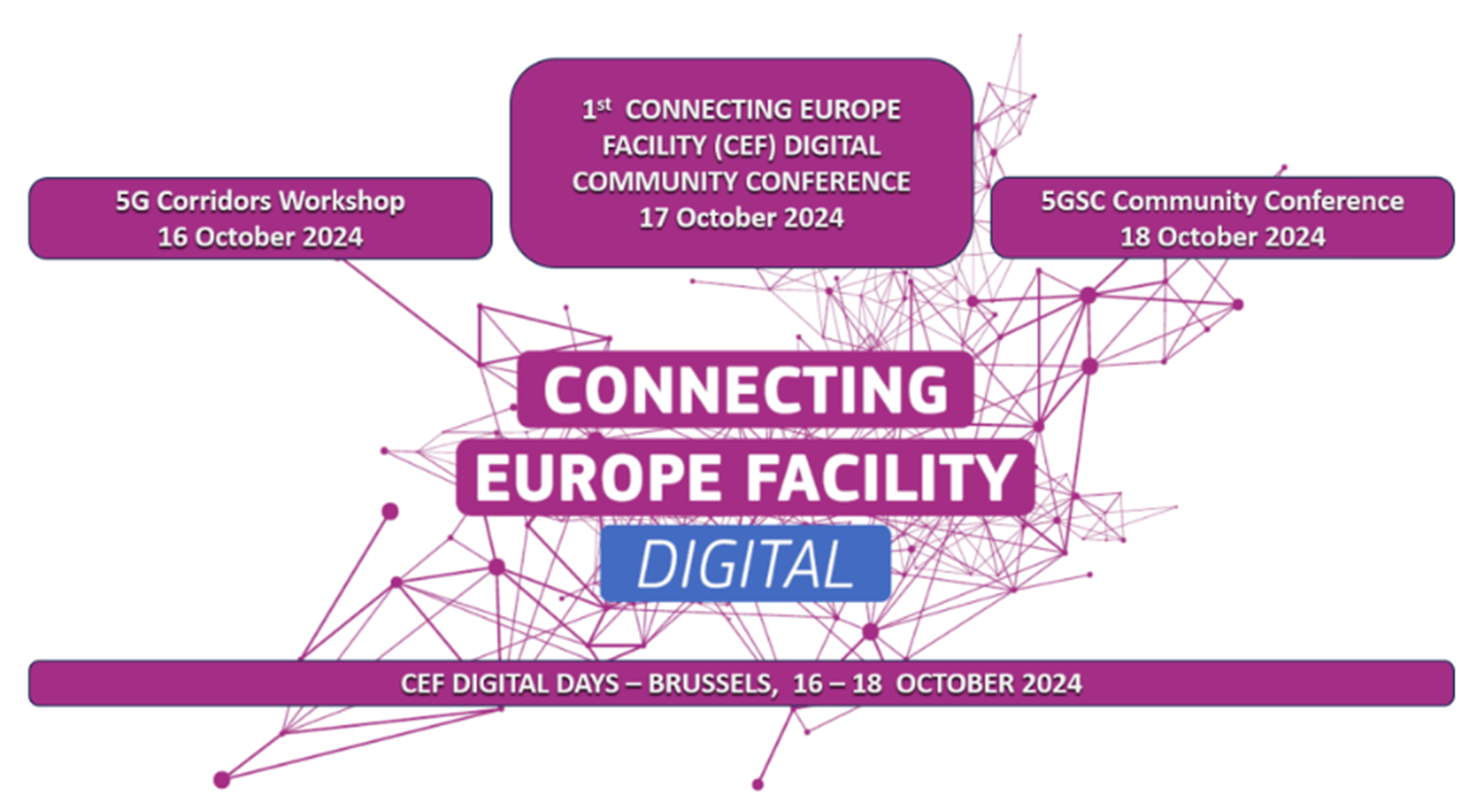
- 16 October: 5G Corridors Workshop
The GUIDE project, with the support of the European Health and Digital Executive Agency (HaDEA) and the 5GMEC4EU project, organised this workshop to review and discuss ongoing 5G Corridors activities and the 5G Strategic Deployment Agendas in the fields of rail and road, as well as other CEF Digital initiatives.
- 17 October: 1st Connecting Europe Facility (CEF) Digital Community Conference
The European Commission, in close collaboration with HaDEA, organised the first CEF Digital community event. The event gathered all the projects funded under the CEF Digital programme and players from all segments of the connectivity value chain to share experience, identify collaboration needs, strengthen synergies and contribute to maximising the programme’s impact on policy goals.
- 18 October: 5G for Smart Communities Conference
The 5G for Smart Communities Support Platform (5GSC SP), on behalf of the European Commission, organised its annual Community Conference for the CEF Digital 5G for Smart Communities stakeholders. The conference included brainstorming sessions with all attendees to build on major lessons learnt by on-going projects.
The SNS programme is well underway
The European Smart Networks and Services Joint Undertaking (SNS JU) is a Public-Private Partnership that aims to facilitate and develop industrial leadership in Europe in 5G and 6G networks and services. The SNS JU funds projects that shape a solid research and innovation (R&I) roadmap and deployment agenda by engaging a critical mass of European stakeholders and facilitating international cooperation on various 6G initiative.
Call 1 projects were launched early January 2023, call 2 early 2024 and call 3 projects will be launched early 2025. The winners for the third call just been announced by the SNS JU.
Steering and Technical Board Meetings
The SNS projects which started operation early 2024 are now well onboarded. The Steering (SB) and Technical (TB) board meetings took place in Castelldefels on 8 and 10 October, 2024.
The Steering Board comprises of the Project coordinators of all SNS projects, a representative of the 6G-IA, and a representative of the European Commission as observer. Its role is to provide guidance on the overall partnership initiative, including: (i) the cooperation between Actions and joint events to promote results of the SNS Actions, concepts and systems, (ii) recommend on collaboration and synchronisation of activities, including but not limited to on management of outcomes, common approaches towards standardisation SME involvement, links with regulatory and policy activities, and commonly shared dissemination and awareness raising activities.
The Technology Board comprises of each SNS Action Technical Manager, a representative of the 6G IA, and a representative of the European Commission as observer. The Technology Board will: (i) Organise technical meetings and workshops, (ii) Establish calls within the organisation for research proposals to address research gaps, (iii) Organize the drafting and publication of relevant technical reports/white papers, reflecting the views/vision/findings/conclusions of a (sub)set of projects/actions, on commonly agreed important technical issues/challenges. The Technology Board agrees upon an internal regulation, dealing with its internal organization, and procedures, and such internal regulation will consider the key principles of article 3.1. and all decisions to be carried out in accordance with the terms of the present Collaboration Agreement by appropriate “Terms of Reference.”
Call 3 projects have just been announced
Projects drive breakthroughs across the network and for future services.
Each of the winning projects explores innovative approaches spanning a comprehensive spectrum of 6G domains. The diverse array of projects ensures a multifaceted approach to addressing 6G challenges and promises a wide range of research breakthroughs and innovative solutions:
- FLECON-6G: Brings the “Intelligent 6G Network of Networks” vision to life delivering a flexible, secure and Open 6G Architecture.
- UNITY-6G: Focuses on creating a highly sustainable and scalable AI-native architectureto support the diverse requirements of 6G networks.
- 6G-LEADER: Is advancing the physical and Radio Access Network aspectsof 6G such as machine learning-empowered algorithms and disaggregated RAN implementation.
- Multi-X: Develops a fusion 6G-RAN system thatwill pioneer multi-sensor and multi-technology paradigms for sensing applications.
- AMBIENT-6G: Introduces energy-neutral devices(ENDs) powered by ambient energy harvesting, aiming to achieve decades-long autonomy for IoT ecosystems.
- NexaSphere: Conceptualises a sustainable multi-connected 3D network, integrating radio and wireless-optical technologiesfor sectors like aeronautics and automotive.
- MARE: Will contribute a novel 6G security planeoffering transparent, multi-domain security and privacy provisioning.
- XTRUST-6G: Will establish a robust zero-trust security framework, focusing on resilient, AI-driven and quantum-safe network and services.
- 6G MIRAI: Develops reliable AI-native wireless systems, leveraging cell-free massive MIMOand next-gen virtualized RAN for seamless communication.
- 6G ARROW: Focuses on leveraging AIin radio access networks, enhancing network efficiency and seamless device integration.
- SUSTAIN-6G (Sustainability Lighthouse): Develops a holistic sustainability frameworkthat addresses environmental, societal, and economic aspects of 6G and for key vertical sectors. It will be applied in an end-to-end manner, considering the full lifecycle of assets.
- 6G-DALI:Will deliver an end-to-end AI framework for 6G, integrating AI experimentation as a service, data analytics and storage.
- X-TREME 6G (Microelectronics Lighthouse): Designs cutting-edge chipsets for 6G, including applications like wireless back-haulingand joint communication and sensing.
- 6G-VERSUS: Focuses on integrating sustainable technologiesacross five environmentally conscious industries, using innovative 6G platforms to optimise data and decision-making processes.
- AMAZING-6G: Aims to showcase 14 use cases in the domains of Healthcare, Public Safety, Energy and Transport(including Rail) implementing large-scale trials and pilots across Europe. Innovative technology enablers are planned to be developed and tested in the areas of Communications, Compute-as-a-Service, Applications and AI, IoT and localization.
- SNS CO-OP: Supports the overall activities of SNS JU, ensuring long-term continuity and coordination for 6G research and innovation efforts across Europe.
Status of running Open Calls
A number of the SNS JU phase one projects are planning to run open calls to either augment or validate the capabilities, functionalities and performance of their experimental platforms or to add use cases to their portfolio of demonstrated services.
6G-BRICKS has kicked off its 2nd Open Call on 11 October in a webinar. The deadline to submit a proposal is set on 23 December 2024. Find more information here. 6G-PATH also organised a information webinar for its 1st Open Call ending on November 21, 2024. More details can be found here. The third open-call of IMAGINE-B5G is open for vertical experiments in the four facilities of the project until December 2, 2024. Detailed information are available here.
FIDAL Open Call #2 is open until December 10, 2024. See here for additional details.
The 6G XR 3rd Open Call is expected in 2025. Stay tuned here.

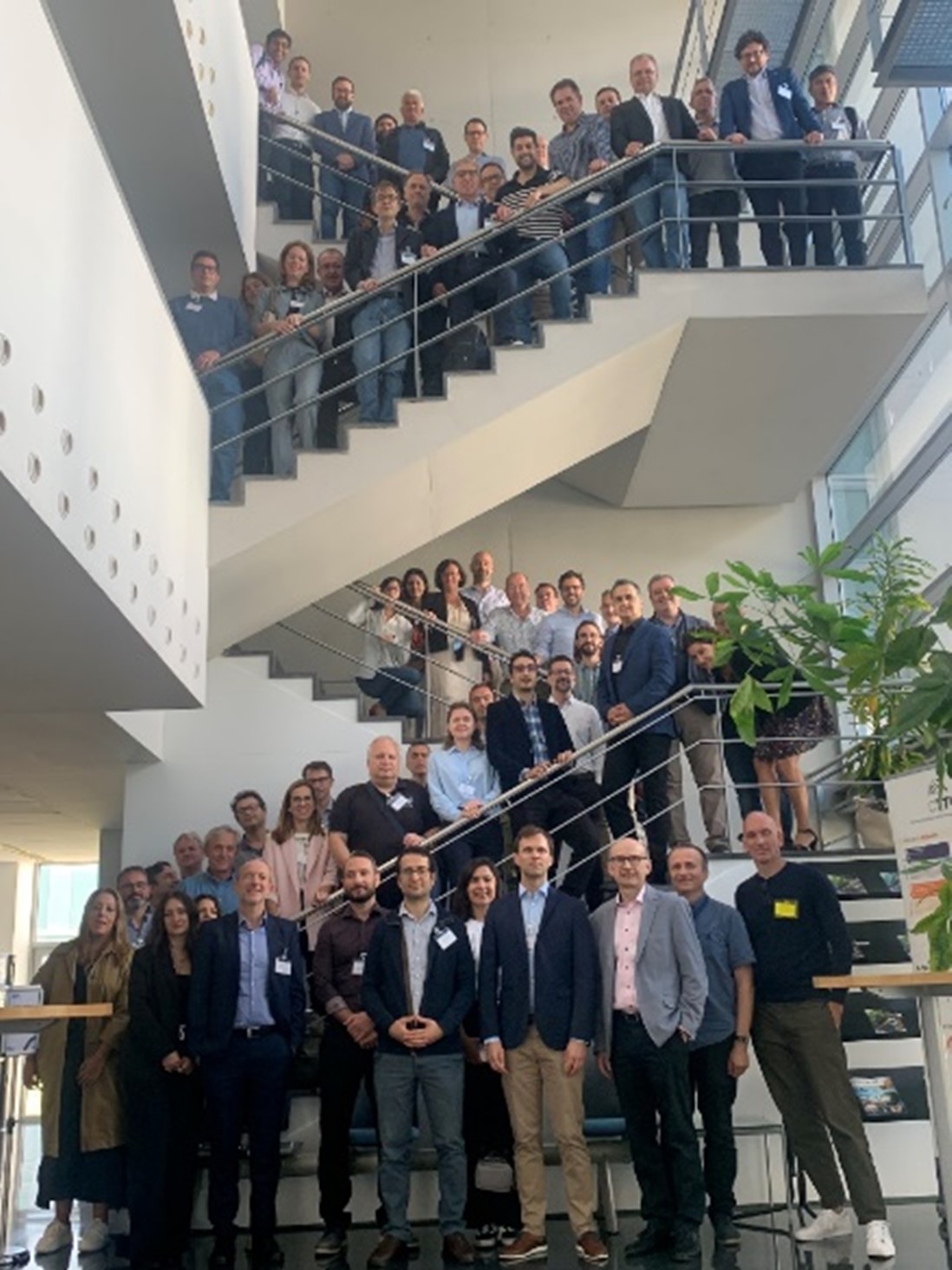
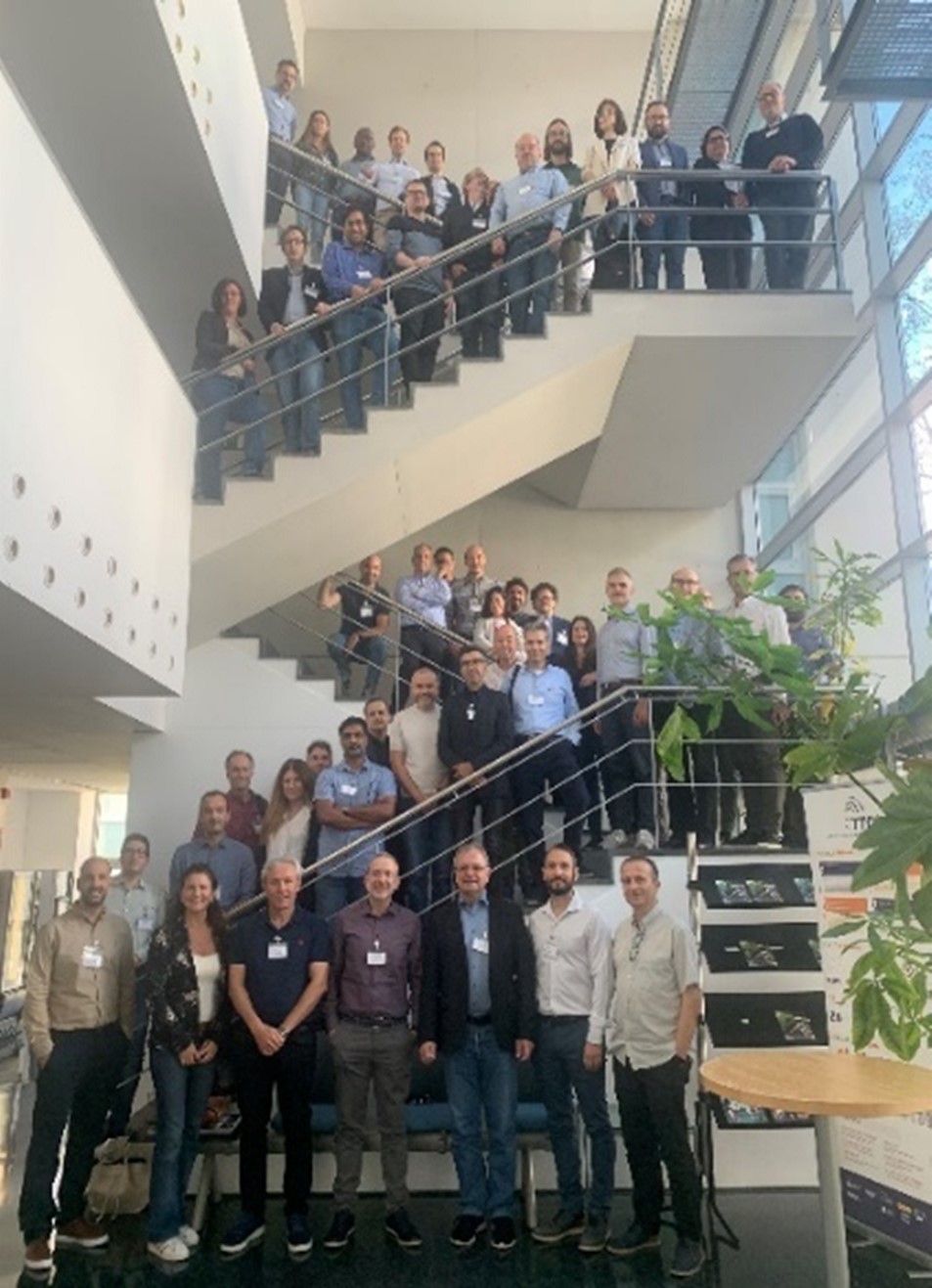
SNS coordinated actions multiply
Numerous actions common to several SNS projects have been successfully carried out in recent weeks. The 5G Techritory conference is a prime example as is the ISAC workshop or the workshops organized by 6G4Society on social acceptance and key values.
- At 5G Techritory, Hexa-X-II presented key contributions to the future of 6G. The SNS-ICE organized and led multiple panels to collaborate and understand European priorities with other SNS projects such as TRIALSNET and TARGET-X.
- At the ISAC workshop, nine SNS projects including HEXA-X-II, BeGREEN, 6G-SENSES, TIMES 6G, 6G-DISAC, INSTINCT, iSEE-6G, 6G-MUSICAL and TERRAMETA explored the future of Integrated Sensing and Communication towards 6G (ISAC) at the online workshop.
- HEXA-X-II organized a joint workshop on architecture and standards including presentations from ADROIT-6G, PREDICT-6G, Desire-6G, ETHER, 6G-SHINE, TERA6G, 6GTandem, CENTRIC and CONFIDENTIAL6G.
- At the European Conference of Optical Communications (ECOC 2024), latest outcomes of the SEASON project have been presented, Guillermo Carpintero (TERA6G Project coordinator) chaired the session M3F, Sensing and Microwave Photonics and Professor Ioannis Tomkos, the FLEX-SCALE project coordinator actively engaged in various discussions and presentations.
- CENTRIC, TrialsNet, NANCY and PRIVATEER participated to the European Researcher’s Night on 27 September 2024.
- The 6G4SOCIETY project organized a series of non-technical workshops and webinars on 6G and sustainability and social acceptance with HEXA-X-II and FIDAL in October 2024. This series aims at:
- Building consensus on the definitions of a select set of Key Values and related indicators (e.g. inclusivity, circular economy), with external experts and vertical representatives.
- Exploring approaches to validating indicators to value in ways that build public trust.
- Considering the potential for interdependent indicators from different areas of sustainability (e.g., energy efficiency with inclusivity), with external experts. Working with and moving beyond trade-offs.
6G4SOCIETY also published its first White Paper titled “Towards a Sustainable and Socially Accepted 6G for Society”.

- 12th FUSECO FOKUS Forum “Forward to 6G”, 7-8 November 2024
- ETSI Software and Standards for Smart Networks and Services Conference & Hackfests, 12-14 November 2024
- IEEE Global Communications Conference 2024, 8-12 December 2024
- ETSI-ITU Symposium on ICT Sustainability: Standards Driving Environmental Innovation, 11-12 December 2024
- 5th IEEE International Symposium on Joint Communications & Sensing, 28-30 January 2025
- MWC 2025, 3-6 March 2025
- ICIN 2025 – 28th Conference on Innovation in Clouds, Internet and Networks, 11-14 March 2025
- Hannover Messe, 31 March – 4 April 2025
- IEEE International Conference on Machine Learning for Communication and Networking, 26-29 May 2025
- EuCNC & 6G SUMMIT 2025, 3-6 June 2025
